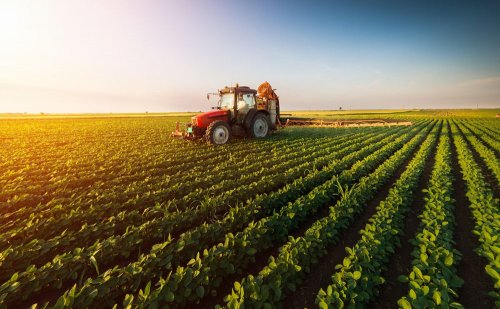In the world because of the Russo-Ukrainian war, lack of fertilizers, supply chain problems and record drought in the remaining available wheat for 10 weeks.
This was stated by Sarah Menker, CEO of Gro Intelligence, reports Fo29
"Even if the war ends tomorrow, our food security problem will not go away in the near future without concerted action," she said.
Prior to the full-scale Russian invasion of Ukraine, both countries together accounted for a third of the world's wheat exports and were among the top five corn exporters.
"Without aggressive global action, we risk extraordinary human suffering and economic damage," Menker said.
The global food shortage has reached an unprecedented level since the 2008 financial crisis, and without aggressive intervention, the situation will only get worse, said a UN Security Council food security expert.
Although Russia claims that sanctions hinder the delivery of goods and restrict commercial transactions due to banking problems, US Secretary of State Anthony Blinken said these allegations were untrue.
He explained that the sanctions imposed by the United States and many other countries do not prevent Russia from exporting food, seeds and fertilizers, as they do not affect the export of these goods.
"We work with countries every day to make sure they understand that sanctions do not hinder the flow of these products," Blinken said.
UN food chief David Beasley has warned the Security Council that the war in Ukraine has caused an "unprecedented crisis" in escalating food prices, which is already sparking protests, riots and growing hunger. The crisis could add at least 47 million people to the 276 million who are "marching to starve."
The executive director of the World Food Program said 49 million people in 43 countries were already "knocking on the door of hunger."
Beasley recalled that when food prices spiraled out of control in 2007 and 2008, more than 40 countries faced political unrest and protests.
Protests and riots are already taking place in Sri Lanka, Indonesia, Pakistan and Peru.
"We have already seen the destabilizing dynamics in the Sahel from Burkina Faso, Mali, Chad. These are just signs of what will happen," Beasley added.
He called on world leaders to do everything possible to stabilize markets as the situation worsens.
Menker explained that the global food crisis is simultaneously caused by 5 factors that create unprecedented problems and will affect food supplies in the world for several years.
- Lack of fertilizers : fertilizer prices have almost tripled and quadrupled in the last two years due to supply chain problems, restrictions on natural gas and export restrictions amid the Russian-Ukrainian war. Fertilizer shortages can significantly reduce the yields of major suppliers such as the United States, Brazil and Western Europe, affecting global food security and inflation for at least three to five years.
- Climate change : global drought conditions for wheat are the worst in 20 years worldwide.
- Deficiency of cooking oil : The price of palm oil has almost tripled in the last two years, and the world has lost 75% of its sunflower oil exports due to the war in Ukraine. China has also significantly increased the amount of oil imported.
- Grain shortage : before the conflict, Russia and Ukraine accounted for a third of world wheat exports. The world is currently at a record low level of grain due to a shortage of fertilizers, supply chain problems and drought.
- Supply chain / logistics bottlenecks : The supply chain problems created by the pandemic have been exacerbated by the war between Russia and Ukraine, as all Ukrainian ports remain closed, making it impossible to move Ukraine's harvested grain across its borders. The transition to the railway will move less than 10% of the pre-war flow.
"We can't solve the problem of food security anywhere on a national scale. Although the next few years are likely to be difficult, we can coordinate a global response," Menker said.
We will remind, agrarians criticized organic farming against the background of food shortages.
As EcoPolitiсa reported earlier, Antonio Guterres said that one-fifth of humanity is threatened by famine because of the war in Ukraine.





